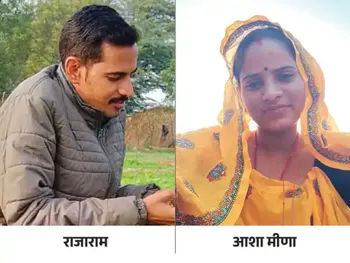NEET aspirant in Kota allegedly dies by suicide, highlighting mental health concerns among students
A heartbreaking incident occurred on April 25 when a 19-year-old student, Rashi Jain, was discovered dead in her hostel room in Kota, Rajasthan. The young woman, originally from Sagar in Madhya Pradesh, was reportedly preparing for the National Eligibility cum Entrance Test (NEET) when she allegedly took her own life. Rashi had been enrolled in coaching classes in Kota since last year, striving to secure her place in medical school, a dream shared by many students in the highly competitive environment of this coaching hub.
According to her friends, Rashi had shown signs of distress and had stopped attending her coaching classes in the weeks leading up to her tragic death. As the youngest member of her family and the daughter of a farmer, she carried the hopes and aspirations of her family on her shoulders. The news of her death has sent shockwaves through her community and has raised critical questions about the immense pressure faced by students in Kota, which is known as a leading center for coaching students aiming for prestigious examinations in medical and engineering fields.
Following the discovery of Rashi’s body, local police were alerted and promptly informed her relatives. A post-mortem examination was conducted at MBS Hospital in Kota on April 26, and authorities are working to ascertain the exact circumstances surrounding her death. Rashi was scheduled to take the NEET-UG examination on May 7, an event that many students perceive as a turning point in their academic and professional lives. The emotional toll of such high stakes cannot be underestimated, and Rashi's tragic fate has highlighted the dire mental health issues that can arise in this high-pressure environment.
Sadly, Rashi's death is not an isolated incident. Kota has witnessed a troubling trend of student suicides in recent years, prompting urgent discussions about mental health resources and support systems for students. In January, another student named Ali Raja from Uttar Pradesh, who was preparing for the Joint Entrance Examination (JEE), committed suicide. Shortly thereafter, Ranjit, a 22-year-old from Prayagraj, also took his own life, further alarming educators and parents alike.
In a particularly distressing case, a student from Bihar attempted suicide by self-immolation in the Jawahar Nagar police station area, while another coaching student in the Vigyan Nagar area fell from a balcony in a failed suicide attempt. On February 8, another female student tragically jumped from the 10th floor of a multistorey building in the Kunhadi police station area, emphasizing the escalating crisis among young aspirants. Just a few weeks later, on February 24, a 17-year-old NEET aspirant from Badaun district in Uttar Pradesh, named Abhishek, ended his life after living in Kota for two years.
These alarming incidents have raised critical concerns among educators, parents, and mental health professionals about the immense psychological burden placed on students preparing for competitive exams. The pressure to excel in these examinations, often exacerbated by societal expectations and familial aspirations, can lead to devastating consequences.
In light of these tragic events, there is an urgent need for the implementation of mental health support systems and counseling services in coaching institutions across Kota and similar educational hubs. Providing students with the necessary resources to cope with academic pressure, such as stress management workshops, counseling services, and peer support networks, can potentially save lives and foster a healthier educational environment.
Rashi Jain’s death is a heartbreaking reminder of the challenges faced by students in pursuit of their dreams. As the community mourns her loss, it is essential to initiate a broader conversation about mental health and well-being, ensuring that no student feels alone in their struggles. It is imperative that educational institutions, parents, and society at large recognize the signs of distress and take proactive measures to support young aspirants navigating the treacherous waters of competitive examinations.




COMMENTS (0)
Sign in to join the conversation
LOGIN TO COMMENT